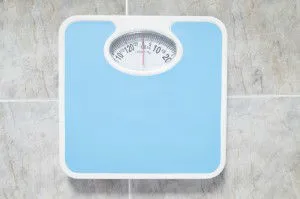When you set out on a weight loss journey, the scale can be your worst enemy. While it may seem like tracking your weight is a good measure of your progress, it can actually be needlessly discouraging, and counterproductive.
Letting the numbers on a scale determine your success or failure misses the point of the entire journey towards overall health. The point is not just to lose weight: unhealthy weight loss can be even more damaging to your body and mind than having a few extra pounds. The healthiest way to view this process is as exactly that, a process, which includes making positive changes in all areas of life, not just making numbers go down on a scale.
According to weight loss expert Christine Gerbstadt, MD, RD, “focusing on the process motivates people to keep going because it seems doable. The goal then becomes any change, even a small one, rather than the end result. What’s more, when you focus on the process, you can see the weekly small steps of achievement – which in turn gives positive emotional feedback and more motivation.”
When you focus on the positive aspects of your journey, you can celebrate your successes along the way. Say you went without processed foods, or kept the sugar out of your coffee, for a week. Or, maybe you spend half an hour a day doing physical exercise for two weeks without giving up.
These things are a big deal, and you should take the time to feel proud of yourself for them, no matter what the scale says. These small celebrations will make you feel good about yourself, and encourage you to continue, and do a little bit better each week.
What’s more, relying on the scale really says very little about how you are doing in the short term. One reason is that your weight fluctuates throughout the day; you may weigh more after a big meal, only to weigh less after using the restroom, and you may weigh less after hitting the gym and sweating, only to see the weight come back up again hours later. You may even find you weigh more after drinking a lot of water; necessary for a healthy diet and especially after exercising.
Jeffrey A. Dolgan, a clinical exercise physiologist based in Miami Beach, Florida, says, “water makes up approximately 65 – 90 percent of a person’s weight, and variation in water content of the human body can move the scale by ten pounds or more from day to day.”
When you exercise, as is essential for a well-rounded weight loss program, your body begins to lose fat while building muscle. This can be very confusing for some people when they step on the scale and notice that they weight the same or more even though their body is looking and feeling more toned. Dolgan explains, “a pound of fat weighs the same as a pound of muscle, however the volume of muscle is denser than the volume of fat, and therefore heavier.”
While you may have an ideal weight in mind, possibly based on the weight of your skinny best friend, or a celebrity magazine, it is important to remember that a healthy weight is different for each person, depending on body type, bone structure, muscle composition, etc. It is much more important how healthy you are becoming in all aspects.
When your organs function better, your muscles are toned, and your body has nutritious fuel to work your metabolism properly, you will start looking and feeling better, and your body will begin to transform towards its optimal shape and weight.
Keeping up a scale-focused mindset leads many people to starvation and fad diets, to say nothing of other, even more dangerous methods, such as diet pills, which may make the pounds temporarily drop, but will wreak havoc on the body in the longer term, leading to a much poorer state of health than when you started.

If you absolutely need to step on a scale, keep it to once a month, tops. This will tell a much more accurate story of how your weight is doing than daily and weekly weigh-ins.
-The Alternative Daily
